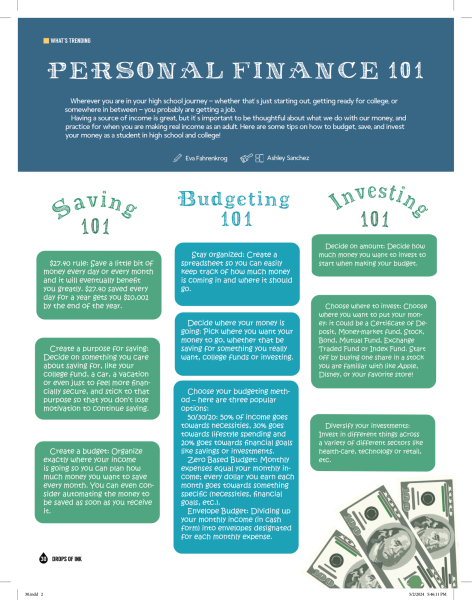Weather’s Effects on Mental Health
Weather can have a strong effect on one’s mental health. Some may thrive in the sunny weather while others find themselves happier in the colder months. As second semester starts to wrap up, many students look forward to the spring and summer. The sun starts to stay out longer and beach days with your friends are the perfect way to spend time together. The sunlight increases serotonin levels which is why many people, like senior Ej Wennerstrom, feel happier during the warmer weather.
“I feel as though colder weather deteriorates my mental health and warmer weather [builds] it up,” Wennerstrom said. “I’m a lot happier, a lot more content and a lot freer in warmer weather.”
Many students at LHS feel the same way. With spring and summer break coming up soon, many look forward to going to warmer places other than Illinois.
The study Temperature and mental health: Evidence from the spectrum of mental health by Jamie T Mullins and Corey White showed that there are both positive and negative effects regarding the weather on mental health, while Healthline reports that low moods tend to occur when it is rainy, foggy, below fifty, or above seventy degrees. They also state that higher moods tend to occur during clear skies and mid-range temperatures.
Seasonal affective disorder (SAD) is a depressive disorder that can occur during specific times of the year. SAD is a lot more than just feeling “under the weather.” Individuals could experience a variety of symptoms. Those affected by SAD in the colder seasons may face low energy levels, weight gain, oversleeping, and changes in appetite. While people who experience SAD during the spring and summer may experience trouble sleeping, weight loss, and anxiety.
While SAD is more common among individuals during colder seasons, it can also heavily affect some during the warmer months. Mental Health America states that about 5% of the United States population is affected by SAD and that four out of five people affected are women. Phototherapy has been helpful to those struggling with SAD as well as antidepressants.
Seasons changing isn’t the only reason that weather affects mental health. Gen Z and millennials are especially concerned about climate change. Pew Research finds that 67% of Gen Z and 71 % of millennials say that the climate should be a priority in the United States.
Pew Research also states that “anxiety about the future is a predominant emotional reaction to climate change content among those who are engaged with the issue on social platforms.”
“The government isn’t doing enough to help climate change,” said senior Nico Adriano. “There are so many organizations that are actively promoting it.”
With little action and little time to make changes, Gen Z has been especially vocal about its concerns towards the future. Recently Project Willow has grown in popularity on social media. This project would allow oil drilling in the National Petroleum Reserve in Alaska, an area owned and protected by the government. Lawmakers in Alaska urged President Biden to approve this project because it would create new jobs and would make the United States less reliant on oil from other countries.
While there were many who were in favor of this major project, there were also a great number of people who were against it. The Willow Project caused an uproar on social media. #StopWillow trended on TikTok. Over one million letters were sent to the Biden administration urging the project not to be approved. Nonetheless, as of March 13, the Biden administration has approved the Willow project. It is likely that Earthjustice, an environmental law group, will attempt to stop the project from proceeding.
Although it can be difficult to maintain a healthy mental attitude in the face of these climate fears and concerns, it can help to simply get outside and appreciate nature.
“I love just being outside,” Wennerstrom said. “I love going for walks. I love to engage with nature and sunlight and going to the beach.”










